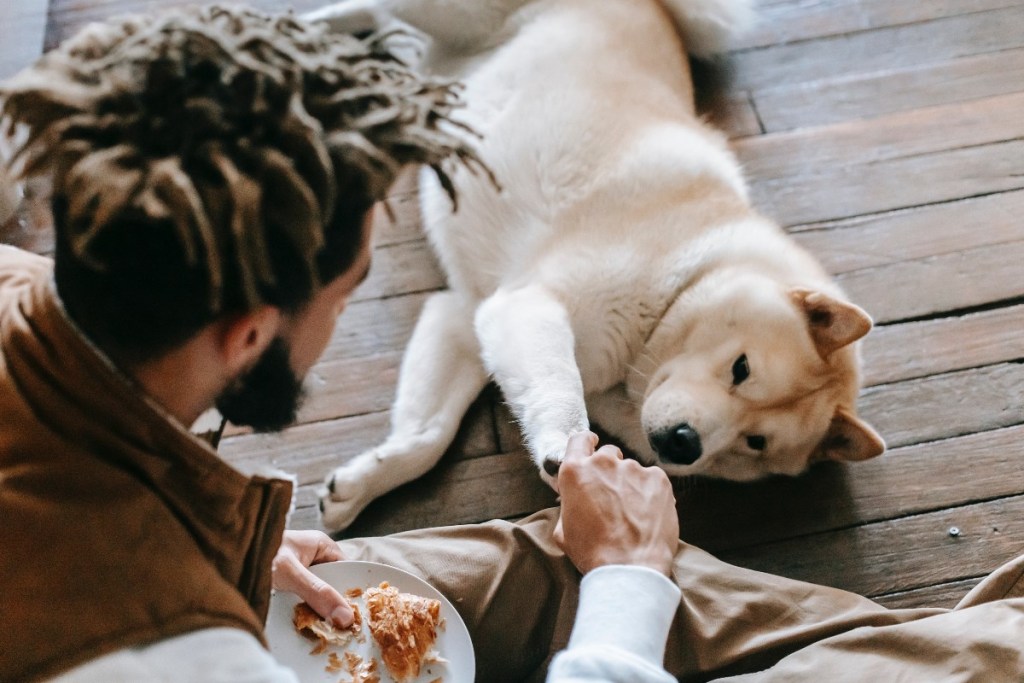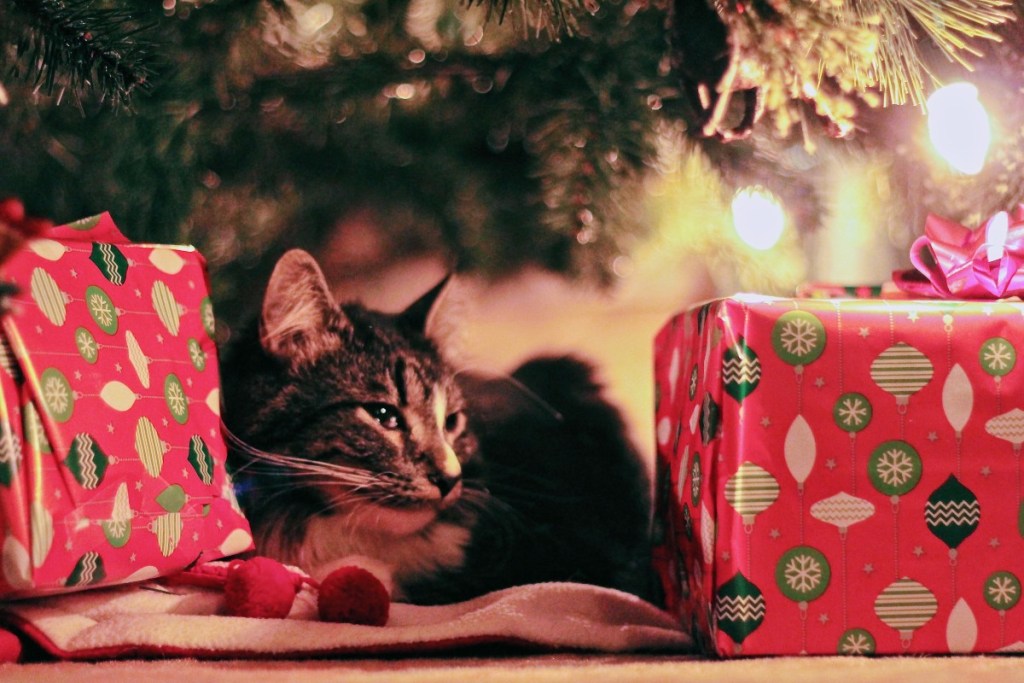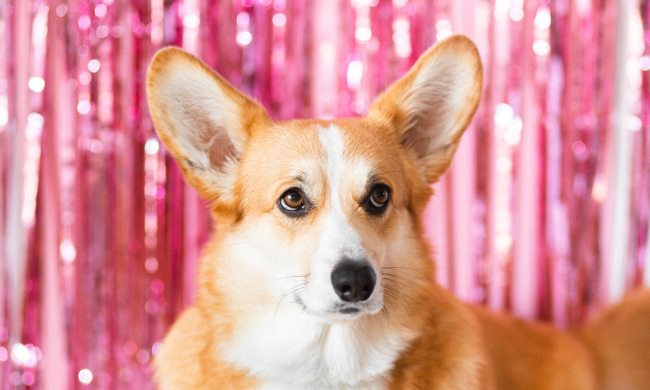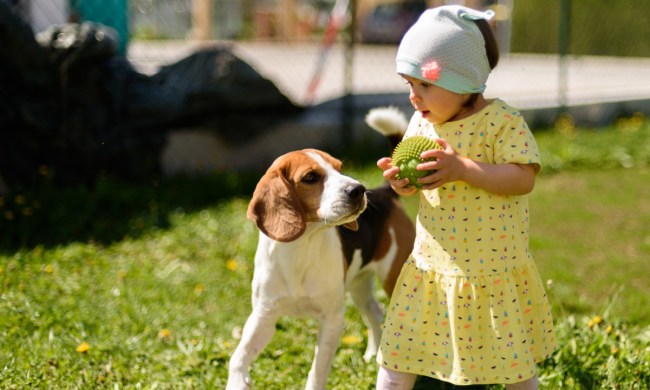The holidays are supposed to be holly and jolly. However, if your pet eats all the holly (and Hershey’s kisses, and chocolate-covered raisins…), it can turn you into more of a Grinch than a Cindy Lou Who.
Unfortunately, several holiday trimmings, from decor to gift wrap, can be trappings for our furry friends. That doesn’t mean you can’t deck your halls, stuff your stockings, and indulge in all your favorite holiday foods. You’ll just want to take a few extra steps to ensure your pet stays healthy and happy during the holiday season. Here are some common holiday dangers for pets and advice on how to keep your little one safe.

Common holiday dangers for pets
Guests
You might be excited to see friends and family this year, but the increased foot traffic into your home may pose a few extra risks for your pet. First, it can be stressful, particularly if your pet has stranger anxiety. It may also disrupt their schedule if meals or walks get postponed while you entertain. What’s more, your guests may feed them table food that may be toxic or just an item you prefer not to give your pet. Give your pet a safe space, such as a cat tree or cozy bed in a secluded room, to retreat to if they’re partied out. Try to feed them at regular times, even if it means excusing yourself from the table, and set ground rules with guests.
Poinsettias
Poinsettias are like the Girl Scout cookies of the holiday season. You likely know someone selling them, whether it’s a co-worker, neighbor, organization, or your nephew’s school. They’re pretty to look at and make great additions to a mantle or dinner table. They’re also toxic to dogs or cats, according to the ASPCA. Though consuming a piece of a poinsettia is rarely fatal to dogs or cats, it can still bother their mouths and stomach. It may also leave you with a holiday gift not on your list to clean up: vomit. Opt for putting your plant somewhere out of reach of your puppy or kitty so that they aren’t tempted to stray from the safer holiday treats you have in store for them.
Trash
If it feels like you’re constantly taking out the trash during the holidays, you’re probably not imagining it. We throw away about 25% more waste during the holidays season, according to researchers. Aside from landing us on Mother Nature’s naughty list, there are some extra hazards in those trash bags for pets. Of course, they may not see it that way.
Turkey bones may smell good, but they can harm your dog or cat’s gastrointestinal tract. They’re also choking hazards.
Wrapping paper is another no-no—it can cause an obstruction in the GI tract that even requires surgery.
You likely already know that chocolate is toxic to pets. If your cousin decides she’s too stuffed to finish that decadent slice of chocolate cake and throws it away, you don’t want your pet getting into it.
Ensure your garbage is pet-proof by putting it in a locked cabinet and finding a can with a tight-fitting lid.

Tree lights
Videos of cats messing with Christmas décor may look funny on TikTok and YouTube, but it’s actually a dangerous activity. The lights are particularly hazardous, as they can cause electrocution and burns. Block off access to the tree with a gate, or even better, close the door to the room it’s in. Some felines aren’t fans of stepping on tin foil, so using it as a base and spraying a tree with a deterrent spray can also keep them from acting on their instincts to check out your mesmerizing-looking lights.
Kids’ toys
You may consider your pet your child, but human kids’ toys are not for them. Though battery-operated children’s toys may look and sound interesting, from the cool lights to the fun sounds, they may contain zinc, which can lead to pancreatitis or kidney damage. Other items, like plastic board game pieces, can break teeth or cause choking. Ensure your pet has plenty of his own toys to play with when your relatives bring their human children over for a visit so you can re-direct your animal’s attention as needed.
Safety comes first
Our pets make our faces light up like a Christmas tree every day. However, from chewing on the lights and eating table scraps, from digging through the trash to chewing on potentially hazardous toys, from pretty but toxic plants to pets dashing out the door as guests come and go, the holidays can pose plenty of risks for your pets. Be sure to stay alert and take some basic precautions to ensure you and your pet have a safe and happy holiday season.



